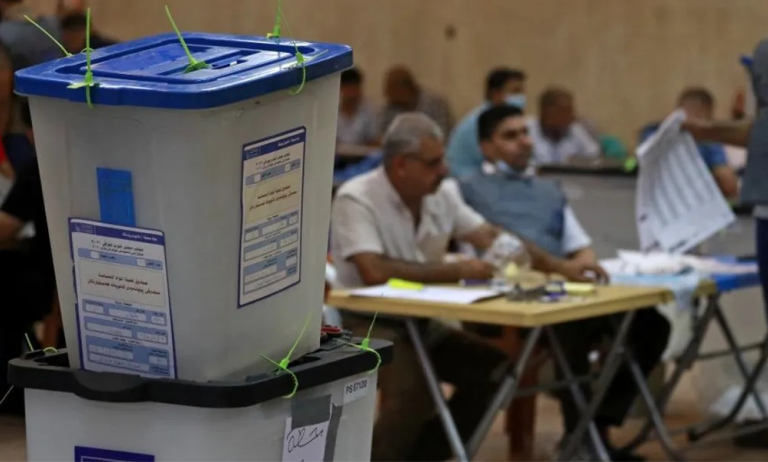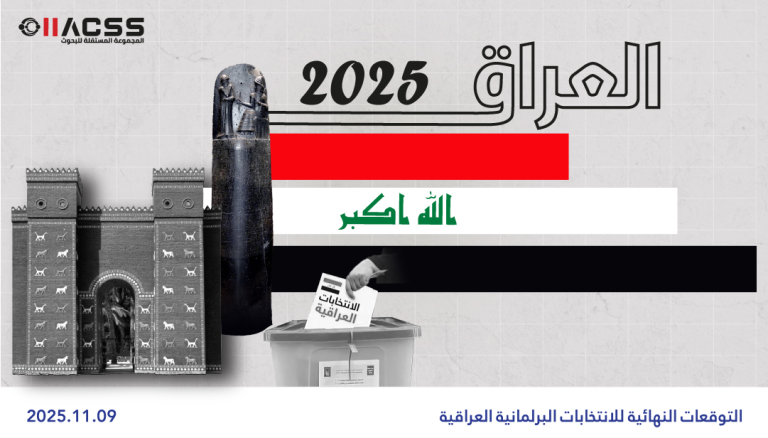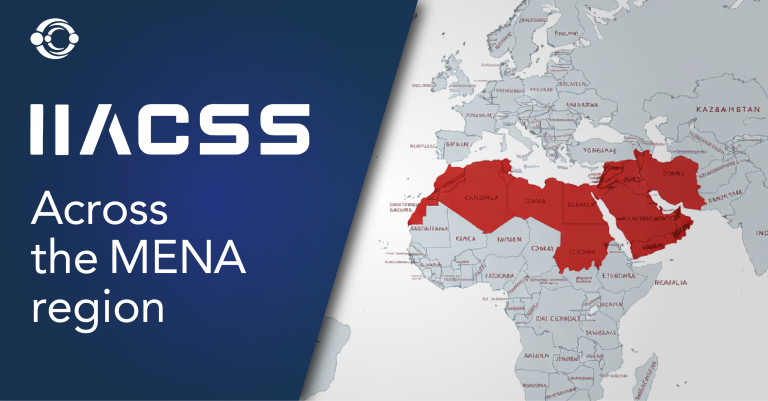متاح أيضاً في English
10 أيلول/سبتمبر 2020
كنت أشاهد احتفالات افتتاح جسر الطابقين (القائد) من على شاشة تلفزيون الشباب عام 1992 فقلت لزوجتي ألم يكن أنفع لنا لو صرفت تكاليف هذا الجسر لشراء طحين أفضل لنأكله بدلاً من هذا الطحين البائس الذي نستلمه الآن؟! في اليوم التالي ذهبت لجلب إبني البالغ 7 سنوات من مدرسته، وإذا بمعلمته تقول لي “انتبه لما تقوله أمام أولادك فقد يكلفك ذلك حياتك”.
أجبتها، ماذا حصل؟ قالت إن أبنك أجابني عندما كنت أشرح لهم عن إنجاز جسر الطابقين، أن أبي يقول كان من الأفضل أستخدام مبالغ كلفته لشراء طحين! وهذا انتقاد غير مسموح به! هذه العبارة كانت كفيلة أن تكلفني حياتي آنذاك لو أن المعلمة أخبرت القوات الأمنية.
تذكرت تلك الواقعة عندما تلقيت أمس رسالة من أحد أصدقائي في معهد واشنطن ينصحني فيها بالتهيؤ لردود فعل عنيفة قد تصل لأغتيالي بسبب مقالة أرسلتها للنشر وذكرت فيها حقائق عن السخط الشعبي في الشارع العراقي، وتحديداً في الجنوب، تجاه الميليشيات والجماعات المسلحة. هذا الغضب الذي أثر سلباً حتى على نظرة الناس للحشد الشعبي بعد أن كانت شعبيته وأفضليته لا تدانيها شعبية أي مؤسسة حكومية عراقية قبل خلال العامين السابقين.
بات العراقيون (كما قلت في المقالة) ينتظرون بفارغ الصبر اليوم الذي يرون فيه شوارعهم وقد خلت من السيارات التي لا تحمل لوحاتها أرقام تعريفية ولا تقف عند أي نقطة أمنية، ومدنهم وقد تحكم فيها القانون لا السلاح المنفلت والفصائل التي تكاثرت مثل الفطر خلال سنوات قليلة!
قال لي صديقي الأمريكي، وهو خبير بالشأن العراقي أن مثل هذا المقال المدعم بالأرقام والحقائق، أذا نُشر، فيقتضي منك أما أن تعيش بحذر شديد، أو تكون في كامل الاستعداد لمجابهة هذه الميليشيا. وأردف أن هشام الهاشمي لم يقم بأي من هذين الأمرين للأسف. وكان يشير هنا الى عدم حذر المحلل السياسي المعروف هشام الهاشمي الذي أغتيل قبل شهرين بسبب آراءه المناهضة للميليشيات ونفوذها الكبير في العراق.
لقد جاءت نصيحة صديقي هذا لتضيف ضغطاً آخر على قلمي بعد أن ظلت أصوات عائلتي وأصدقائي تلاحقني وتمنعني من التعبير عن آرائي بحرية، محذرةً أياي من التمادي في أنتقاد المسلحين مما قد لا يتسبب بقتلي فقط وأنما بإيذاء عائلتي ومن أحب. هنا قررت فعلاً أن أسحب مقالي وأستمع لصوت العقل والمغلف بصوت الرعب.
في بداية التسعينات، نشر كنعان مكية والذي كان ملهماً ومعلماً لرئيس الوزراء الكاظمي، كتاباً شهيراً أسماه جمهورية الخوف، يصف فيه حالة الرعب التي كان يعيش فيها العراقيون آنذاك نتيجة الدولة البوليسية التي كان لا يجرؤ أحد على اجتياز الخطوط الحمراء الكثيرة التي وضعتها. أذكر أني لم أستطع نشر بحث عن الفساد الذي استشرى في العراق في التسعينات وأضطررت أن أنشره خارج العراق دون أن أذكر أسم العراق كي لا أتعرض للمساءلة القانونية عن نشري ما يمكن أن يسيء لسمعة البلد.
وتبدو اليوم المفارقة غريبة إذ أن تلميذ مكية الذي حلم بدولة الحرية، الذي يترأس الحكومة الآن قد ورث دولة يشعر فيها الجميع بالرعب وليس فقط الخوف كما كانوا في التسعينات.
الفارق الوحيد ربما هو أن الخوف في جمهورية الخوف آنذاك كان معلوماً في حين أنه بات مجهولاً في جمهورية الرعب. فالناس آنذاك كانت تخاف من جهاز القمع الذي تسيطر عليه الدولة. وبعد أن كان العراقيون يعرفون من قتلهم باتوا الآن يجهلون قاتليهم. ما تحسن في الوضع هو انه بينما كان العراقيون مطالبين أيضا بالتضحية بأبنائهم للدولة لخوض حروبها آنذاك ، لم تعد هناك مطالب بالتضحية من أجل البلد.
كان كثير من العراقيين الغاضبين من الإحتلال عام 2003 (وأنا منهم) يمنون أنفسهم أن عزائهم بعد هذا الأحتلال الذي دمر بلدهم، في أنهم سيحصلون أخيراً على دولة الحرية التي حلموا بها، حيث يستطيعون أن ينتقدوا النظام دون أن يشعروا بخوف. لكن حتى هذا الحلم قد تبخر على مايبدو وصار حلماً بعيد المنال.
صحيح أن العراقيين باتوا قادرين على نقد النظام بل وشتم رأس النظام دون أن يشعروا بخوف، لكنهم لا يجرؤون على نقد ميليشيات المسلحة المنفلت ومن أسسها، أو يرأسها أو حتى يدعمها. ومن يجرؤ على ذلك فسيكون مصيره أما الأغتيال الجسدي كما حصل للهاشمي، ورهام يعقوب، وتحسين أسامة، وسواهم الكثيرون ممن تمت تصفيتهم جسدياً خلال السنة الأخيرة، أو يتم اغتيالهم معنوياً من خلال الأقلام والمواقع الكثيرة التابعة لهذه الميليشيات والممولة منها. فمن يجرؤ على نقد سلطة الميليشيات سيتهم بالعمالة لإسرائيل أو أمريكا، أو أنه صدامي بعثي، أو ربما إرهابي متطرف، أو أحد الجواكر الذين تمولهم السفارة الأمريكية.
وهناك اليوم في العراق عشرات القنوات التلفزيونية والاذاعية والمواقع الالكترونية الممولة من هذه الميليشيات والتي تعمل وفق توجيهات موحدة ومنسقة لمهاجمة أي كاتب ينشر أي شيء معاكس لنفوذها أو حتى يعارض التوجهات الإيرانية في العراق والمنطقة. فإيران التي أنشأت ودربت ودعمت تلك الميليشيات، باتت الخط الأحمر لجمهورية الرعب المتحكمة بالعراق. وصار أي حديث عن النفوذ الإيراني أو الولائي في جمهورية الرعب الميليشياوية أشبه بنقد صدام وعائلته في جمهورية الخوف سابقاً.
لقد واجه الكاظمي خلال زيارته الأخيرة لواشنطن كثير من الأسئلة المحرجة من مضيفيه عن نفوذ تلك الميليشيات المتزايد وما تقوم به من قمع وتكميم للأفواه والحريات. وقد قيل له بصراحة أنه لا يمكن تنفيذ أي من المشاريع الأقتصادية التي تعهدت الشركات الأمريكية الكبرى بتنفيذها في العراق والتي يؤمل أن تحدث نقلة اقتصادية هائلة مالم يتم ضبط الوضع الأمني في العراق وفي مقدمته التخلص من الميليشيات المنفلتة ونفوذها المتصاعد. وأن لا أحد يمكنه مساعدة العراق مالم يساعد العراقيون أنفسهم وفي مقدمة ذلك إستعادة ولاية الحكومة على الدولة.
ويدرك الكاظمي وحكومته أن لا فرصة أمامهم للنجاح ماداموا غير قادرين على استعادة الدولة والشعب من نفوذ الميليشيات ولذلك وضعوا ذلك في مقدمة أولويات برنامجهم الوزاري. مع ذلك، فأن تصاعد الغضب الشعبي وبالذات في الشارع الشيعي من نفوذ تلك الميليشيات وعمليات الأغتيال شبه اليومية التي تقوم بها يضع الكاظمي بين مطرقة الضغوط الخارجية وسندان الغضب الشعبي من نفوذ هذه الميليشيات.
وقد تضاعفت هذه الضغوط بعد الهجمات بصواريخ الكاتيوشا التي تشنها هذه الميليشيات بشكل مستمر على المنطقة الخضراء والسفارة الأمريكية والقواعد العسكرية التي تتواجد فيها قوات التحالف الدولي. ويبدو أن ما كان يأمله الكاظمي من تهدئة لنشاط هذه الميليشيات بعد أنتزاعه لأعلان أمريكي صريح لنية القوات الأمريكية بمغادرة العراق خلال ثلاث سنوات، خلال زيارته الأخيرة، لم يحصل بدليل الأغتيالات التي حصلت لناشطين مدنيين في البصرة والهجوم ليلة 27 أغسطس بالصواريخ على المنطقة الخضراء.
لقد حاول الكاظمي ممارسة أقصى درجات الضبط والصبر لتأجيل معركته مع ميليشيات السلاح المنفلت بسبب إدراكه لضعف أدواته في أعقاب أول مواجهة له مع كتائب حزب الله قبل شهرين لكن يبدو الآن أن صبره وليس فقط صبر الشعب ودول العالم، بدأ ينفذ نتيجة التصعيدات والاستفزازات الكثيرة التي تقوم بها تلك الميليشيات والتي تستعجل المواجهة قبل أن يتمكن الكاظمي من فرض سيطرته الكاملة على الدولة العراقية.
إن استراتيجية الكاظمي التي تقوم على تقوية مؤسسات الدولة الأمنية من جهة وأحتواء نشاط هذه الميليشيات من خلال حث القيادات الشيعية التي لها تأثير على تلك الميليشيات من جهة أخرى لن يتاح لها المزيد من الوقت للمضي بها. فلا القوات الأمنية الرسمية كانت قادرة على تقديم دليل على قدرتها على ضبط هذه الميليشيات ولا القيادات الشيعية تبدو راضية عن الكاظمي وتحركاته الأخيرة داخلياً أو خارجياً. لذا تبدو المواجهة بين الطرفين أقرب من أي وقت مضى الان. ويبرز السؤال الكبير الآن: هل سيتمكن تلميذ كاتب جمهورية الخوف من منع العراق من أن ينزلق ليصبح جمهورية رعب الميليشيات؟
منقذ داغر
الدكتور منقذ داغر هو مدير منطقة الشرق الأوسط وشمال أفريقيا وعضو مجلس إدارة مؤسسة جالوب الدولية.







